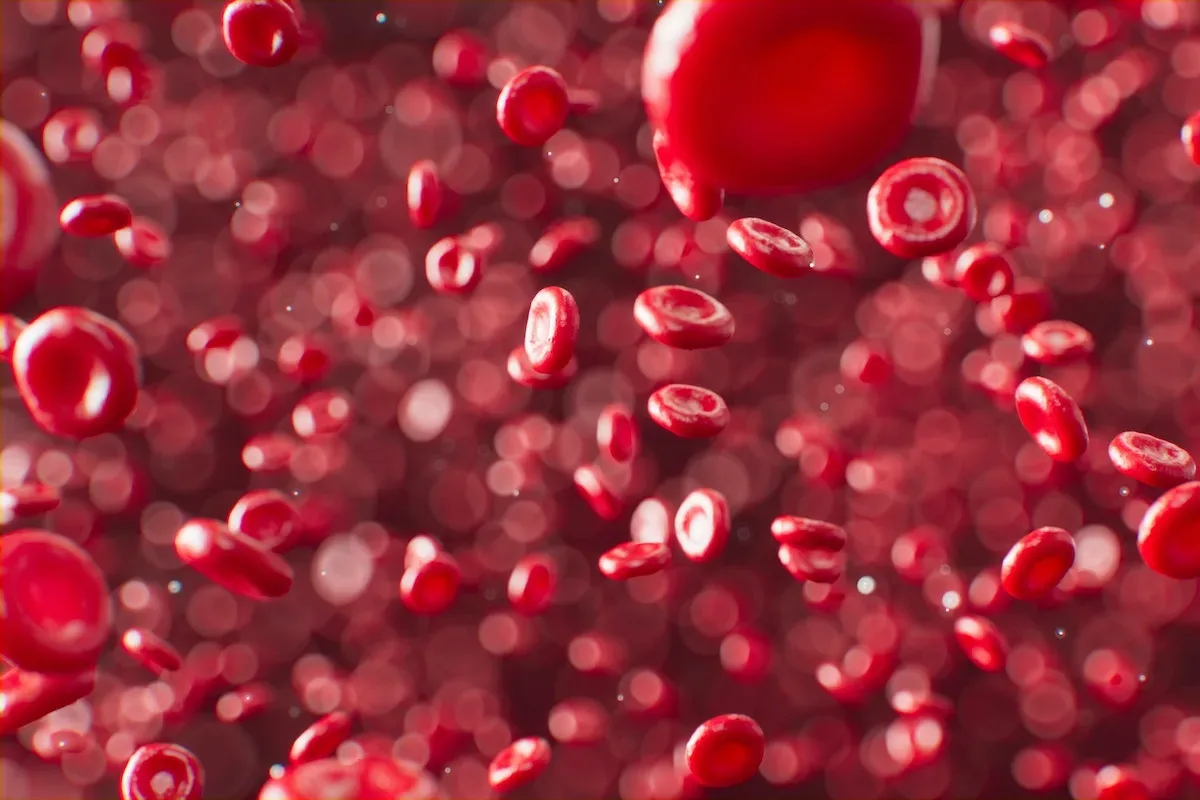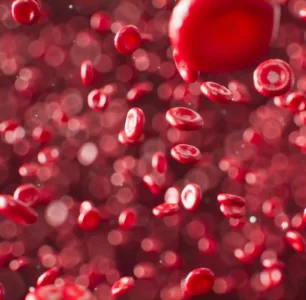Anemia is a condition that occurs when the body doesn’t have enough healthy red blood cells to carry oxygen to the tissues. This lack of oxygen can cause fatigue, weakness, and shortness of breath, among other symptoms. In teenage girls, anemia is particularly common due to a number of factors, including menstruation, growth spurts, and a lack of iron-rich foods in their diet.
One of the most common causes of anemia in teenage girls is iron deficiency. Iron is essential for the production of hemoglobin, the protein in red blood cells that carries oxygen throughout the body. Teenage girls who don’t consume enough iron-rich foods, such as red meat, dark leafy greens, and fortified cereals, are at increased risk of developing iron deficiency anemia.
Other factors that can contribute to anemia in teenage girls include heavy menstrual bleeding, which can deplete the body’s iron stores, and growth spurts, which require increased oxygen and nutrients. Additionally, certain medical conditions, such as celiac disease and inflammatory bowel disease, can interfere with the absorption of nutrients and lead to anemia.
The symptoms of anemia in teenage girls can vary, but they often include fatigue, weakness, and shortness of breath. Other symptoms may include pale skin, headaches, dizziness, and irregular heartbeat. If left untreated, anemia can lead to complications such as heart problems, growth and development issues, and a weakened immune system.
Fortunately, anemia in teenage girls can be managed effectively with early diagnosis and treatment. If you suspect that you or your daughter may be anemic, it’s important to see a healthcare provider for a blood test. Treatment options may include dietary changes to increase iron intake, iron supplements, or other medications to address the underlying cause of the anemia.
In conclusion, anemia is a common condition that affects many teenage girls, but it can be managed effectively with early diagnosis and treatment. By understanding the causes, symptoms, and treatment options available, you can help prevent complications and improve overall health. If you or your daughter is experiencing symptoms of anemia, don’t hesitate to seek medical advice and support.
Causes of Anemia
Anemia is a condition that occurs when the body lacks sufficient healthy red blood cells to carry oxygen to the tissues. There are several causes of anemia, including:
- Iron deficiency: Iron is essential for the production of hemoglobin, the protein in red blood cells that carries oxygen throughout the body. When the body doesn’t have enough iron, it can’t produce enough hemoglobin, leading to anemia.
- Vitamin deficiency: Vitamins such as vitamin B12 and folate are necessary for red blood cell production. A lack of these vitamins in the diet can cause anemia.
- Blood loss: Any significant blood loss, such as from heavy menstrual bleeding, surgery, or injury, can cause anemia.
- Chronic diseases: Chronic diseases such as kidney disease, cancer, and inflammatory bowel disease can interfere with the body’s ability to produce red blood cells and lead to anemia.
- Inherited conditions: Some types of anemia, such as sickle cell anemia and thalassemia, are inherited conditions that affect the body’s ability to produce healthy red blood cells.
- Medications: Certain medications, such as chemotherapy drugs and some antibiotics, can cause anemia as a side effect.
- Pregnancy: During pregnancy, the body produces more blood to support the growing fetus, which can lead to anemia if the mother’s iron and nutrient stores are not sufficient.
It’s important to identify the underlying cause of anemia in order to properly treat and manage the condition. If you suspect that you may have anemia, it’s important to see a healthcare provider for diagnosis and treatment.
Symptoms of Anemia
Anemia is a condition that occurs when the body lacks sufficient healthy red blood cells to carry oxygen to the tissues. The symptoms of anemia can vary depending on the severity of the condition and the underlying cause, but common symptoms include:
- Fatigue and weakness: Anemia can cause extreme tiredness and weakness, even with mild exertion.
- Pale skin: The skin may appear pale or have a yellowish tinge due to a lack of red blood cells.
- Shortness of breath: The body may not be getting enough oxygen, leading to shortness of breath, particularly during physical activity.
- Headaches: Anemia can cause headaches or migraines.
- Irregular heartbeat: In severe cases, anemia can cause an irregular heartbeat or heart murmur.
- Dizziness or lightheadedness: Anemia can cause dizziness or lightheadedness, particularly when standing up or sitting down quickly.
- Cold hands and feet: Anemia can cause a decrease in circulation, leading to cold hands and feet.
- Brittle nails: Anemia can cause nails to become brittle and break easily.
- Restless leg syndrome: Anemia can cause uncomfortable sensations in the legs, particularly at night.
- Pica: In some cases, anemia can cause a craving for non-food items such as ice, dirt, or paper.
It’s important to see a healthcare provider if you suspect that you may have anemia or are experiencing any of these symptoms. Early diagnosis and treatment can help prevent complications and improve overall health.
How can Anemia affect teenage girls?
Anemia is a condition that can have a significant impact on teenage girls. It can cause extreme tiredness and weakness, making it difficult for teenage girls to keep up with their daily activities, including school, sports, and social events. Anemia can also affect cognitive function, making it difficult for teenage girls to concentrate and retain information in school.
Moreover, anemia can affect growth and development in teenage girls, particularly if it is left untreated for an extended period of time. It can cause menstrual irregularities, including heavy or prolonged periods, which can further exacerbate anemia and lead to additional health complications. Anemia weakens the immune system, making teenage girls more susceptible to infections and illnesses.
Anemia during pregnancy can increase the risk of complications, including premature birth, low birth weight, and maternal mortality. It can also impair athletic performance, making it difficult for teenage girls to participate in sports and other physical activities. Therefore, early diagnosis and treatment of anemia in teenage girls is crucial to prevent complications and improve overall health. If you suspect that you or your daughter may have anemia, it’s important to see a healthcare provider for diagnosis and treatment.
Anemia prevention
Anemia can be prevented through simple lifestyle changes and dietary modifications. Consuming iron-rich foods such as red meat, dark leafy greens, and fortified cereals can help prevent iron-deficiency anemia. Vitamin C-rich foods can also help the body absorb iron more efficiently.
If you are a teenage girl who experiences heavy menstrual bleeding, talk to your healthcare provider about ways to manage your periods to prevent anemia. If you have a chronic medical condition such as kidney disease or inflammatory bowel disease, work with your healthcare provider to manage your condition and prevent anemia.
Pregnant teenage girls should take prenatal vitamins and work with their healthcare provider to monitor their iron levels and prevent anemia during pregnancy. If you are a teenage girl who participates in sports or other physical activities, be sure to consume a balanced diet that includes plenty of iron and other essential nutrients to prevent anemia and maintain optimal athletic performance.
In summary, anemia can be prevented through simple lifestyle changes and dietary modifications. Consuming iron-rich foods, managing heavy menstrual bleeding, treating chronic medical conditions, taking prenatal vitamins during pregnancy, and maintaining a balanced diet are all effective ways to prevent anemia in teenage girls. If you are at risk of developing anemia or suspect that you may have the condition, talk to your healthcare provider for advice and support.
Anemia and Sport
Anemia can have a significant impact on athletic performance, particularly in teenage girls who participate in sports and other physical activities. Anemia can cause fatigue and weakness, making it difficult for athletes to perform at their best. It can also impair the body’s ability to transport oxygen to the muscles, leading to decreased endurance and stamina.
Furthermore, anemia can cause a decrease in concentration and cognitive function, making it difficult for athletes to stay focused during training and competition. Anemia can also increase the risk of injury, as it can cause a decrease in bone density and muscle mass.
If you are a teenage girl who participates in sports or other physical activities, it’s important to maintain a balanced diet that includes plenty of iron-rich foods, such as red meat, dark leafy greens, and fortified cereals. Vitamin C-rich foods can also help the body absorb iron more efficiently. Taking iron supplements as directed by your healthcare provider may also be necessary if you have been diagnosed with anemia.
If you suspect that you may have anemia or are experiencing symptoms such as fatigue, weakness, and shortness of breath during exercise, talk to your healthcare provider for advice and support. Early diagnosis and treatment of anemia can help improve athletic performance and prevent complications.
Treating Anemia
The treatment of anemia depends on the underlying cause of the condition. If anemia is caused by iron deficiency, treatment may involve dietary changes to increase iron intake, iron supplements, or other medications to address the underlying cause of the anemia.
If anemia is caused by a vitamin deficiency, treatment may involve vitamin supplements or dietary changes to increase vitamin intake. For anemia caused by chronic medical conditions such as kidney disease or inflammatory bowel disease, treating the underlying condition may help improve anemia.
In cases of severe anemia, blood transfusions may be necessary to increase the number of healthy red blood cells in the body. In some cases, medications that stimulate the production of red blood cells may also be used.
If you suspect that you may have anemia or are experiencing symptoms such as fatigue, weakness, and shortness of breath, it’s important to see a healthcare provider for diagnosis and treatment. Early diagnosis and treatment of anemia can help prevent complications and improve overall health. Your healthcare provider can recommend the best course of treatment for your specific needs based on the underlying cause of your anemia.

